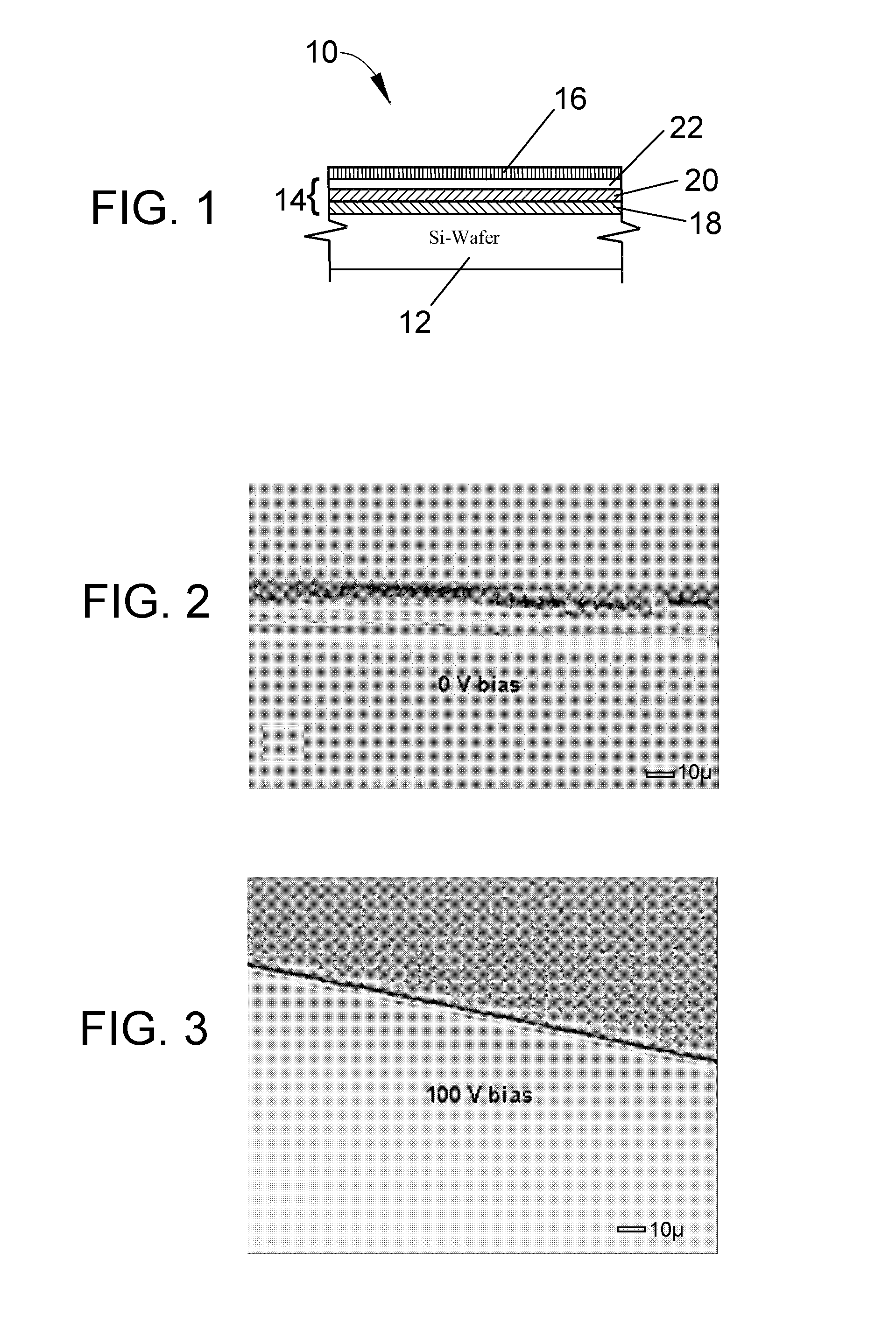Enhancement of thermal interface conductivities with carbon nanotube arrays
a technology of carbon nanotubes and thermal interfaces, applied in the field of thermal interfaces, can solve problems such as the reduction of interfacial thermal resistance, and achieve the effects of improving interface performance and life, increasing the effective thermal contact conductance of the thermal interface, and high thermal contact conductan
- Summary
- Abstract
- Description
- Claims
- Application Information
AI Technical Summary
Benefits of technology
Problems solved by technology
Method used
Image
Examples
Embodiment Construction
[0023]The present invention provides the capability for thermal interface materials (TIM's) with significantly improved performance, and particularly the performance of carbon nanotubes (CNT's) as a TIM. According to one preferred aspect of the invention, performance enhancement is achieved in part with the use of multiple metal layers that, in addition to providing the required surface catalysis for the nanotube growth process, form an anchoring structure that improves the bond with the CNT's manifested by a more efficient heat-flow path at the CNT-substrate interface. According to another preferred aspect of the invention, performance enhancement is achieved by synthesizing the CNT's to ensure that a dense, vertically-oriented array forms, as opposed to randomly oriented CNT's or isolated bundles of CNT's. Such a CNT array can be combined with a solid or flowable TIM, which in the latter case the CNT array reduces the tendency for the flowable TIM to be pumped out from between a p...
PUM
| Property | Measurement | Unit |
|---|---|---|
| Fraction | aaaaa | aaaaa |
| Fraction | aaaaa | aaaaa |
| Electric potential / voltage | aaaaa | aaaaa |
Abstract
Description
Claims
Application Information
 Login to View More
Login to View More - R&D
- Intellectual Property
- Life Sciences
- Materials
- Tech Scout
- Unparalleled Data Quality
- Higher Quality Content
- 60% Fewer Hallucinations
Browse by: Latest US Patents, China's latest patents, Technical Efficacy Thesaurus, Application Domain, Technology Topic, Popular Technical Reports.
© 2025 PatSnap. All rights reserved.Legal|Privacy policy|Modern Slavery Act Transparency Statement|Sitemap|About US| Contact US: help@patsnap.com



